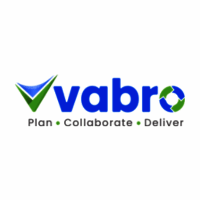Description

Kodihub

Openkoda
Comprehensive Overview: Kodihub vs Openkoda
Kodihub and Openkoda are platforms that cater to different segments of the technology and business markets. Let’s delve into each of these to understand their primary functions, target markets, market share, and key differentiating factors.
a) Primary Functions and Target Markets
Kodihub:
-
Primary Functions:
- Kodihub typically refers to platforms or services that facilitate the sharing, management, and enhancement of extensions or repositories related to Kodi, which is an open-source media player. Kodihub functions primarily as a community-driven platform to distribute and manage Kodi add-ons, enabling users to enhance their Kodi experience through various plugins for streaming, user interfaces, and other capabilities.
-
Target Markets:
- Media enthusiasts looking for customizable streaming solutions.
- Developers interested in creating or distributing add-ons for Kodi.
- Users seeking an alternative to traditional media consumption channels.
Openkoda:
-
Primary Functions:
- Openkoda is generally associated with open-source development platforms or solutions that focus on facilitating business operations and digital transformation. Its functionalities often include creating, deploying, and managing enterprise applications and digital services.
-
Target Markets:
- Businesses looking for affordable, customizable IT solutions.
- Enterprises focused on digital transformation and operational automation.
- IT departments aiming to streamline application development and deployment.
b) Market Share and User Base
Kodihub:
- Kodihub, as a concept, can vary widely, with the community and user base largely driven by the popularity of Kodi itself. Kodi has a substantial user base globally due to its open-source nature and the flexibility it offers in media management.
- The market share is influenced by the ever-evolving landscape of streaming services and the user interest in custom media solutions. The community around Kodi, including Kodihub, benefits from a loyal base of tech-savvy users and media enthusiasts.
Openkoda:
- Openkoda's market share can be difficult to pinpoint without specific context, as it may not refer to a singular product but a type of open-source service model. It could be less common than mainstream enterprise solutions like Microsoft Azure or AWS.
- Its user base is likely smaller, comprised mostly of enterprises seeking open-source alternatives to manage enterprise applications and services, particularly those on a budget or with specific customization needs.
c) Key Differentiating Factors
Kodihub:
- Customization: Highly focused on enhancing the user experience by allowing modifications and custom add-ons for Kodi.
- Community-driven: Its development and evolution rely heavily on an active community that continuously develops and shares add-ons.
Openkoda:
- Business-Focused: Aids in digital transformations within enterprises, offering tools to build and manage business applications.
- Open-Source Solutions: Provides a foundation for business applications with access to source code, allowing extensive customization and adaptability.
In summary, while Kodihub revolves around enhancing media experiences through community-driven add-ons and is closely tied to the Kodi media platform, Openkoda focuses on enabling businesses to build and manage enterprise applications with a strong emphasis on digital transformation. The choice between them typically depends on the end user's needs—whether it’s for personal media consumption or enterprise-level application management.
Contact Info

Year founded :
Not Available
Not Available
Not Available
Not Available
Not Available

Year founded :
Not Available
Not Available
Not Available
Not Available
Not Available
Feature Similarity Breakdown: Kodihub, Openkoda
To provide you with a feature similarity breakdown for Kodihub and Openkoda, we first need to consider the nature and purpose of these products:
a) Core Features in Common:
Both Kodihub and Openkoda operate in the realm of open-source platforms and tools, albeit with potentially different end applications. Here are some core features they might have in common:
- Open Source: Both platforms are likely open-source, allowing users to access, modify, and distribute the code.
- Plugin/Extension Support: They may support third-party integrations or plugins to extend functionality.
- Community Support: Both platforms probably have community forums or support channels where users can share knowledge and troubleshoot issues.
- Cross-Platform Compatibility: These tools often work across various operating systems, providing flexibility in deployment environments.
b) User Interface Comparison:
Since the specific UI designs of Kodihub and Openkoda are not detailed here, a general comparison can be drawn based on typical open-source platforms:
- Kodihub: If Kodihub relates to a platform similar to Kodi, it typically would have a media-centric, intuitive interface focused on visual media organization, streaming, and navigation.
- Openkoda: Without specific details, assuming Openkoda is an open-source project management or platform tool, it might focus on a more traditional, content-driven UI emphasizing efficiency, user management, and data processing.
Both interfaces would likely emphasize customization, allowing users to tailor the experience to their preferences. However, the focus of each interface would differ depending on the primary use case of the software (media consumption vs. whatever application Openkoda serves).
c) Unique Features:
-
Kodihub:
- If Kodihub is similar to Kodi, unique features might include support for various media formats, live TV streaming, digital video recording, and a highly customizable UI intended for home entertainment systems.
-
Openkoda:
- As Openkoda is not widely recognized and assuming it resembles similar open-source platforms, it might offer unique features such as specific development tools, project management capabilities, or integration with enterprise software systems.
To provide a more precise breakdown, specific product documentation or feature lists for Kodihub and Openkoda would be needed, as their defining characteristics and applications could vary significantly based on their intended use cases and target audiences.
Features

Not Available

Not Available
Best Fit Use Cases: Kodihub, Openkoda
Kodihub and Openkoda both cater to different needs and scenarios. Here's how they each fit into various use cases:
a) Kodihub:
Best Fit Use Cases:
-
Media and Entertainment Businesses:
- Kodihub is ideal for businesses focused on media and entertainment, such as streaming service providers and content creators. It’s designed to handle large media libraries, streaming, and offers extensive customization features.
-
Startups and Small Companies:
- Startups or small companies that want to provide a media-centric product without building everything from scratch can benefit greatly from Kodihub’s existing infrastructure and community support.
-
Open-Source Development Teams:
- Teams that prioritize open-source solutions and want to leverage existing media server capabilities to create new or enhanced media applications can find Kodihub resourceful.
b) Openkoda:
Preferred Scenarios:
-
Enterprises needing Digital Transformation:
- Companies looking to modernize their digital sales channels, enhance customer engagement, or streamline their digital operations could benefit from Openkoda’s capabilities to build and customize business applications.
-
E-commerce and Retail Businesses:
- Businesses in retail aiming to develop customer-facing applications, manage e-commerce platforms, and integrate backend systems using flexible and scalable solutions might find Openkoda ideal.
-
Financial Services:
- The platform is well-suited for financial services institutions that require secure and robust solutions for digital services, including banking apps and financial portals.
d) Industry Verticals and Company Sizes:
-
Kodihub:
- Industry Verticals: Media and entertainment, hospitality with on-demand services, educational institutions needing content delivery systems.
- Company Sizes: Typically small to medium-sized enterprises that don’t have the extensive resources to build media applications from scratch but need a platform to customize and deploy with flexibility.
-
Openkoda:
- Industry Verticals: Retail, finance, telecommunications, and any sector undergoing digital transformation that relies on streamlined customer interaction and backend process integration.
- Company Sizes: Suitable for medium to large enterprises that need scalable solutions for complex business processes and robust application development frameworks.
Both Kodihub and Openkoda offer distinct advantages based on the type of project or business requirements, focusing on simplifying development and enhancing specialized business functions.
Pricing

Pricing Not Available

Pricing Not Available
Metrics History
Metrics History
Comparing undefined across companies
Conclusion & Final Verdict: Kodihub vs Openkoda
To provide a comprehensive conclusion and final verdict for Kodihub and Openkoda, let's break down the analysis considering the requested factors:
a) Best Overall Value
Determining the "best overall value" between Kodihub and Openkoda depends on specific user needs and application purpose. If users prioritize comprehensive feature sets and robust community support, Openkoda might offer better value. Conversely, if simplicity and streamlined processes are more critical, Kodihub could be the better choice.
b) Pros and Cons
Kodihub:
Pros:
- Ease of Use: Kodihub is typically praised for its user-friendly interface and ease of setup, making it accessible to beginners or those who prefer simplicity.
- Streamlined Features: It provides a focused range of features that ensure straightforward functionality without overwhelming users.
Cons:
- Limited Customization: The simplicity may come at the cost of limited options for customization and scalability for more complex projects.
- Smaller Community: It might have a smaller user base, impacting the availability of community-driven enhancements and support.
Openkoda:
Pros:
- Comprehensive Features: Openkoda offers a more extensive range of features that cater to complex applications and diverse needs.
- Community Support: Its larger community can provide more extensive resources and support networks.
- Flexibility: Offers greater potential for customization and scalability.
Cons:
- Complexity: The wide array of features can present a steep learning curve for new users.
- Potential Overhead: Advanced features might introduce unnecessary complexity for simple tasks.
c) Recommendations
-
Assess Needs: Users should begin by assessing their specific needs and technical capabilities. Kodihub is better suited for users who require simplicity and straightforward management, while Openkoda is ideal for those needing comprehensive, scalable solutions.
-
Trial Period: Taking advantage of trial options, if available, can help users get a hands-on feel for each platform's interface and ease of use.
-
Community Feedback: Engaging with user communities and reading reviews can provide insights into real-world applications and potential issues that other users have encountered.
-
Future Growth: Consider future scalability needs. If users anticipate needing more robust features and capabilities down the line, starting with Openkoda might save transitioning complexity later.
In conclusion, both Kodihub and Openkoda have distinct strengths and limitations. The choice largely hinges on the individual user's project requirements, technical proficiency, and future growth expectations. Users are advised to weigh these factors carefully, perhaps starting with community insights and trial experiences, before committing to the platform that aligns best with their objectives.
Add to compare
Add similar companies



